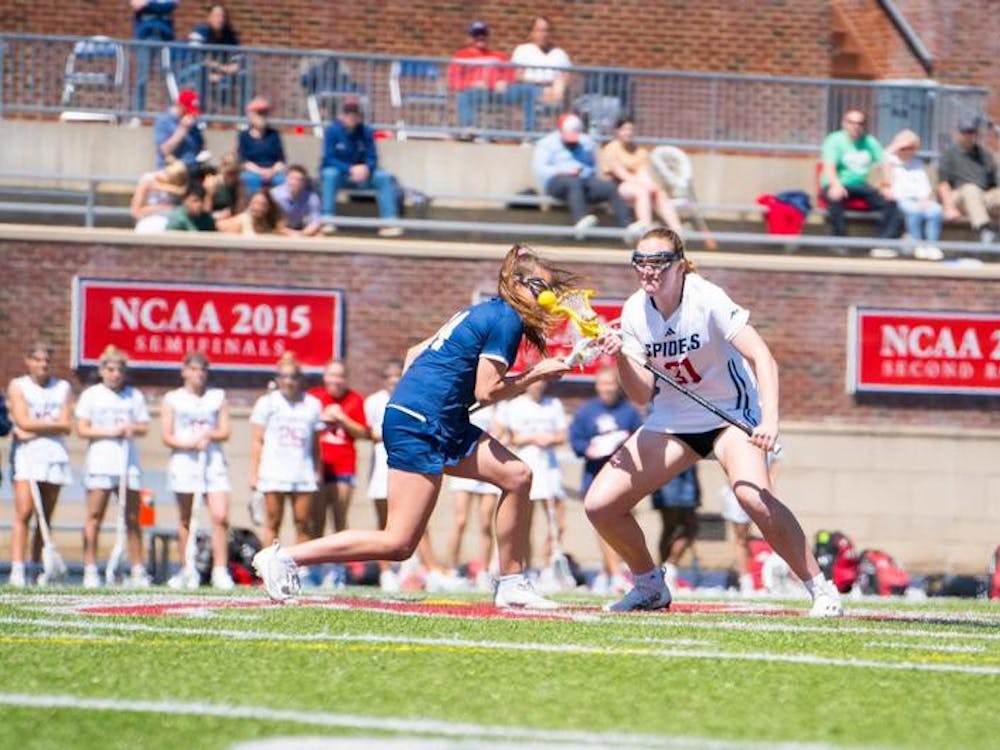For the past eight years, the Center for Civic Engagement and Office of the Chaplaincy have been partnering to organize an hour-and-a-half poverty simulation for students to better understand what it's like to live in poverty. This year, some professors expressed concern that the simulation might not be sending the right message to University of Richmond's campus.
Students who participate are assigned a role in a low-income family and are tasked with providing food, shelter and other needs for their families. The event simulates a month, with the weeks progressing approximately every 20 minutes.
The CCE's website describes the event as a "hands-on experience designed to help participants begin to understand what it might be like to live in a typical low-income family trying to survive from month to month."
Peter Lurie, an English professor, voiced his concerns about the event after he noticed a Spiderbyte message announcing it. He sent an email to the Arts and Sciences faculty listserve expressing his concern that the event might make some students feel uncomfortable.
Lurie said he would not want to presume to speak for anyone on the Richmond campus, but wondered if, for students who may come from families living in the conditions the event simulates, the simulation would enforce that their experience might be different from other students'.
Amy Howard, the executive director of the CCE, said the simulation was designed to build understanding of the realities of living in poverty and to build respect for the people living in those situations.
"The kit is not a game and it does not assume participants are all privileged," Howard said. "The CCE and chaplaincy have worked to treat the simulation event, facilitation and reflection with sensitivity and care."
Lurie said although he believed students who take part in the simulation take it very seriously, part of the problem might stem from the use of the word "simulation," which means synthetic.
"It's producing something, which in its very sort of format, is make-believe," Lurie said, "and once again it distances this stuff from reality and that's what I wondered about."
Joe Essid, director of the Writing Center, expressed similar concerns about calling the event a simulation.
Essid said although he respected the efforts of everyone involved, it might be the name that caused problems. He said that although the simulation might have sensitized participants to the realities of having to match an insufficient paycheck with a large number of bills to pay, he had questioned whether it was the best use of time.
"The impression--and that may be wrong--is of entitled folks playing at being poor, then getting a pizza," Essid wrote in an email.
Enjoy what you're reading?
Signup for our newsletter
Shelby Longland, a CCE fellow who participated in the simulation when she was a student, said the goal of the simulation was to build awareness, understanding and respect. She said for her as a student, the experience had been impactful and enlightening.
"I do not claim to understand what it means to live in poverty," Longland said. "I do, however, have a better understanding of what it means to live in poverty and I have a heightened respect for residents living in poverty because the simulation helped me recognize many challenges I hadn't considered before."
Essid volunteers with Habitat for Humanity once a month and said one nice aspect of that program was that the homeowners put in the "sweat equity" to get their houses built.
"I'd rather see our students and my colleagues go out in small groups, to meet people nothing like them," Essid said. "I'd like to see them leave the 'bubble' around campus and, well, get their hands dirty."
Lurie said his intention was never to criticize the CCE or the intent behind the simulation, but rather, to raise questions in a spirit of mindfulness and sensitivity.
"In our best efforts to encourage a broader awareness of the world and of class and socioeconomic experiences," Lurie said, "should we not be careful or, as I said, be mindful of unintended effects?"
Contact staff writer Katie Evans at katie.evans@richmond.edu
Support independent student media
You can make a tax-deductible donation by clicking the button below, which takes you to our secure PayPal account. The page is set up to receive contributions in whatever amount you designate. We look forward to using the money we raise to further our mission of providing honest and accurate information to students, faculty, staff, alumni and others in the general public.
Donate Now


